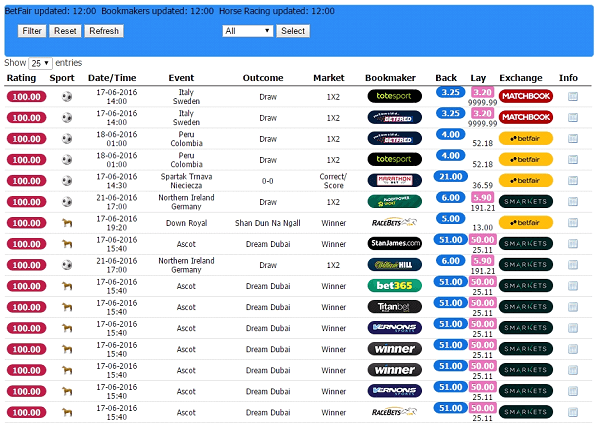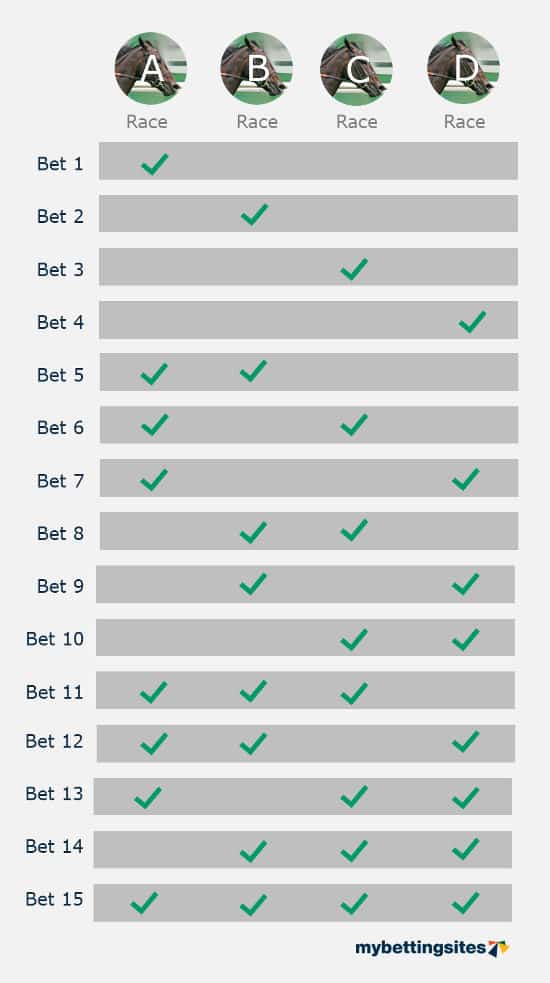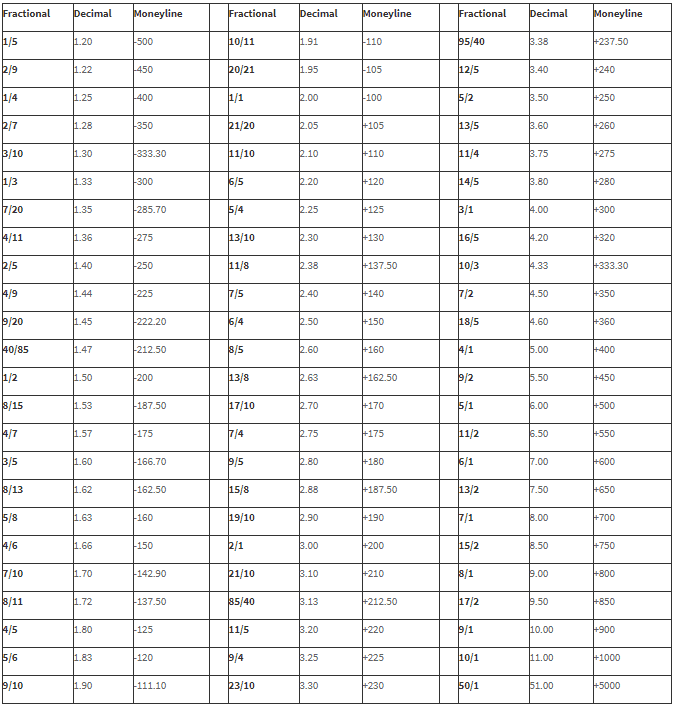What Do Betting Odds Mean Uk
UNDERSTANDING how odds work is fundamental to being successful at betting on football, horse racing or any sport.
Eg if you bet £100 on a horse whose odds are 9-4, your overall payout on a winning bet is 9 / 4 x 100 + 100 = £325 You'll sometimes hear of an 'Odds on' favourite. What this means is that the event is so likely to happen that the bookies have set the odds so that the return is less than the stake. Traditionally, odds in the UK are expressed as a fraction. These odds can be used to calculate your net profit (excluding your stake) and although they seem complicated the method of calculation is relatively straightforward. This is best explained using an example.
Seasoned punters will find calculating odds to be second nature but for beginners the prospect of getting to grips with what odds mean and in particular grappling with fractional odds can be a daunting one.
Even if you're an experienced punter this Masterclass on understanding odds offers you the chance to refresh your thinking on identifying value based on the implied probability of odds.

Fractional Odds

Betting Odds Meanings
Traditionally, odds in the UK are expressed as a fraction. These odds can be used to calculate your net profit (excluding your stake) and although they seem complicated the method of calculation is relatively straightforward.
This is best explained using an example. Let's say your bet is priced at 6/4 – in simple terms that means you need to stake £4 to win £6 (plus you'd get your £4 stake back).
How To Read Betting Odds Uk
In terms of maths another way to express 6/4 is 6 divided by 4 which equals 1.5. So whatever your stake is you can multiply it by 1.5 to calculate your profit.
So far so simple. But things do get a little bit more tricky when the odds are something like 11/8. The numbers may be more difficult but the principle is the same; 11/8 is the same as 11 divided by 8 which equals 1.375. Again, multiply this by your stake to calculate profit.
Decimal Odds
Online punters are becoming more familiar with decimal odds, especially if they bet with bookies who have their origins in mainland Europe where they are more common, in fact they're sometimes referred to as European Odds.
In truth they're much easier to work with than fractions hence their growing popularity.
Instead of having to calculate from a fraction the work is already done for you with decimal odds. Where decimal odds differ from fractional odds however, is that your stake is built in to the calculation.
Lets take a look using an example. Let's say your bet is priced at 2.50. That means that if you stake £10 you'll receive £25.00 if your bet wins. Bear in mind that that includes your stake, so your profit is actually £15.00.
What do odds mean?
So now we understand the two most common ways of expressing odds let's look at how odds are calculated and what they mean.
If we toss a coin there are two potential outcomes; heads or tails (lets discount the minute possibility of the coin landing on it's side!), therefore a 50% chance of either happening. If you were betting on the outcome of the coin toss you'd expect odds of 1/1 (evens, 2.0) for either heads or tails. (Of course a bookmaker would build in their margin to any bet, but we'll discuss that in a future Masterclass). This means you would double your money if your bet wins.
The odds reflect the implied probability of an outcome, in this instance a 50% chance, giving us odds of 1/1.
When it comes to setting odds for sports events it's much more difficult as there are so many other factors to consider. Finding discrepancies between the bookies' odds and your evaluation of the implied probability of an outcome is where you the punter can find value and beat the bookies (more of this in future Masterclasses too).


The Foxes and the Pyramids
To illustrate how difficult it can be to set the odds accurately let's look at one of the most famous big wins in recent years; Leicester City winning the Premier League in 2014/15.
The Foxes were an incredible 5000/1 to win the title at the start of the season. In probability terms that means they would be expected to win the league once every 5,000 times it was played (assuming the same conditions at the start of each season).
To give you some perspective the bookies odds implied that Leicester City could play until the season 6014/15 and win the Premier League just once. Or to put it another way, had the Premier League began when the Egyptians were scrawling hieroglyphics on the walls of the Pyramids then the Foxes would just about have been due to win the title.
Implied Probability

So now we understand that betting odds express a probability or chance of an outcome occurring. With this knowledge we can start to think about finding value in our bets by calculating the implied probability of an outcome.
This can be done quite simply. Here's an example; We simply divide 100% by the odds. So, if your odds are say 2.50, the sum is 100% divided by 2.50 = 40%. This means that the odds imply there is a 40% chance of that particular outcome happening.
If you think there is a greater than 40% chance of the outcome happening then you have found yourself a value bet. If not, then you're best not placing a bet.
Odds Comparison
Understanding odds is just the beginning, getting to grips with the large amount of bookmakers odds on offer is another task in itself. Thankfully we have websites such as OddsHunter and OddAlerts available to us. The former offering football odds comparison with the later an in-play football alerts service.
Summary
With a good grasp of how to understand odds, what they mean, and how they represent probability you'll be well on your way to becoming more successful at betting.